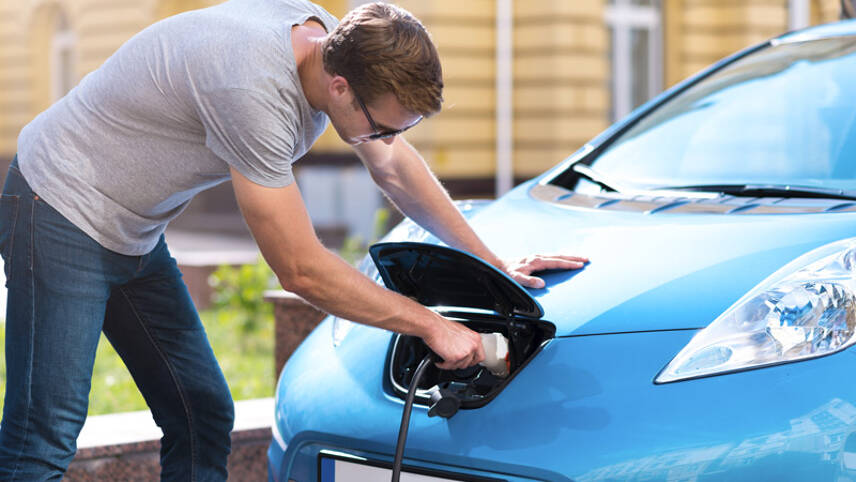Register for free and continue reading
Join our growing army of changemakers and get unlimited access to our premium content

The announcement is the first from the UK Government as we head into the solutions-themed day of proceedings at COP27 on Thursday (17 November)
The UK Government has provided its first annual update on the Zero Emissions Vehicles Declaration, one year after it launched at COP26 in Glasgow. The aim of the declaration was to unite nations, states, regions, cities and businesses in making commitments to transition to zero-emission vehicles in a manner consistent with the Paris Agreement.
We’ve had confirmation that a total of 214 new signatories have joined the declaration. This will require them to develop plans to end the sale of light vehicles which are not zero-emission by 2035 in leading markets, and 2040 elsewhere. This former target is primarily for the G20 and other wealthy nations. A full list of new signatories is now available here.
Additionally, the COP26 Presidency is handing over the management of the Declaration to a new ‘Accelerating to Zero Coalition’, comprising the UK Government, the UN High-Level Action Champions team, the Climate Group, the International Council on Clean Transportation and the Drive Electric Campaign.
We have also been told that the UK and the US, through the Zero Emission Vehicles Transition Council set up at COP26, will take time on Thursday (17 November) to lay out their priorities for 2023. These will include improving public electric vehicle (EV) charging infrastructure and alternative fuel refuelling infrastructure; supporting businesses to transition fleets and improving EV accessibility for disabled people and other marginalised groups. In both the UK and the US, the EV stock has grown at a rate outpacing the rate of charging point installations, meaning that range anxiety still persists even as automakers launch models with better ranges.
In the meantime, there has been confirmation of a new support package for emerging and developing economies looking to set, meet and increase their zero-emission vehicle ambitions. The UK, US, Germany, Sweden, South Korea and the Netherlands have pledged to provide more funding from finance already committed to international efforts to decarbonise road transport. New funding and technical assistance is likely to also be announced in the future.
This will be supported by a new Rapid Response Facility, which will provide funding to address the “short-term, urgent technical assistance needs” of emerging and developing market governments.
And, speaking of finance, the World Bank has confirmed the first tranche of organisations and projects to receive funding through its Global Facility to Decarbonise Transport, which is aiming to mobilise $200m by 2031 for developing and emerging economies. Successful projects include a rapid bus transit system in Abidjan, Ivory Coast.
Emerging and developing markets signed up to the Declaration are Armenia, the Dominican Republic, Ghana, India, Kenya, Mexico, Morocco, Paraguay, Rwanda, Turkey and Ukraine.
Collaborative workstreams
The UK Government is also taking this opportunity to once again highlight its partnership with India, in collaboration with the US, on low-carbon road transport. This partnership will facilitate the international provision of tailored advice and support. It builds on an update on the Breakthrough Agenda on Road Transport, provided last week in a bid to bring EV costs in line with internal combustion engine (ICE) vehicle costs by the end of the decade.
Finally, the US has confirmed that it will lead a Zero-Emission Vehicle Emerging Markets initiative in partnership with the UK and the World Business Council for Sustainable Development (WBCSD). The initiative will foster dialogues between emerging and developing nations and major carmakers and other key corporates in the Global North.
COP26 President Alok Sharma said “there are still huge opportunities in emerging markets and developing countries”, and that the new announcements “provide the platform for countries to go further and faster and to ensure that no country is left behind”.
Transport accounts for around one-quarter of annual global emissions and road transport is by far the biggest contributor, generating around three-quarters of the sector’s emissions. This makes it a crucial sector to transition to deliver international climate mitigation goals.
LOTUS
The Egyptian COp27 Presidency also seems to be placing a lot of weight on transport-related solutions today.
It has launched a new challenge on ‘Low-Carbon Transport for Urban Sustainability’, or LOTUS for short. The challenge is all about transforming urban mobility systems in a way that decreases reliance on individual ICE vehicles and decarbonises public transport.
LOTUS has identified five systemic challenges to progress in this area – the financing gap; weak policymaking; a lack of policy coherence; siloed thinking and difficulty regulating informal transport operators.It wants to see “transformative” and collaborative action to “activate systemic change”.
You can find full details on LOTUS here.
Click here to see all of edie’s COP27 content.


Please login or Register to leave a comment.